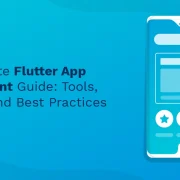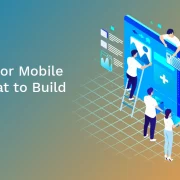
Open Access And Principles Of ORCID
Open access (OA) refers to the free online availability of articles and publications and other digital information with limited restrictions on the reuse of the same. All one needs is the internet and the copyright holder’s consent. This is especially important for authors and readers. The readers and researchers have no restrictions to access, download, distribute, print and search within the information: the information is completely free of charge and free of most copyright and licensing restrictions. OA started in 2000 and is a relatively new publication model in the history of scientific journals.
Types of Open Access:
- Gold: In the Gold open access, articles and content of journals are entirely open to access — available to anyone on the internet without any subscription fees or sign-in. The “article processing charges”, which are the publication costs, are paid for by the authors or by their institutions. Alternatively, the organization, review, formatting and archiving expenses are covered by charging the authors or the institution a fee.
- Green: In this type of open access, the publisher of a subscription journal allows the author to retain the non-commercial rights to his/her article so that it can be posted in open internet archives. These archives consist of institutional repositories or discipline-based archives that are maintained by scholarly associations. In some cases, the publisher could require that open access in the archives be delayed by 6 to 12 months.
- Hybrid: In the Hybrid open access type, anyone on the internet would be able to access one or more articles in a subscription journal, but the rest of the content would be available only to people and institutions with paid subscriptions. While this is better than a closed subscription journal, it makes the freely-accessible articles hard for faculty and students to know about.Open access is a relatively new publishing model (since 2000) that makes research information available to scholars and readers at no cost, thereby enhancing scholarly communication as opposed to the traditional subscription model in which readers can access scholarly information only after paying a subscription fee (usually via libraries).
Advantages of Open Access
An increase in the visibility and reuse of academic research results. The Berlin Declaration on Open Access to Knowledge in the Sciences and Humanities (2003) has been signed by various organizations globally. The principles of open access were set out for academic research.
Since in most fields, authors of academic or scholarly journals are not paid, they consent to OA without losing revenue. Also, OA is perfectly compatible with peer review: just as authors of articles donate their labour, most of the journal editors and referees participating in peer review also donate their labour.
While OA literature costs less to produce than conventionally published literature, it is not free to produce. This is about finding better ways to pay the costs than by making the readers pay. How OA is delivered determines the business models for paying the bills.
The two primary methods of delivering OA to research articles are: via OA journals and via OA archives or repositories.
- OA archives or repositories make their content freely available on the internet, but do not perform peer review. They include both unrefereed preprints and refereed postprints. The archives comply with the metadata harvesting protocol of the Open Archives Initiative, so they are interoperable: thereby, users would be able to find their contents without knowing which archives exist, their location, or their contents. There is also an open-source software for building and maintaining OAI-compliant archives.
- OA journals perform peer review and make the content available for everyone. Their expenses comprise manuscript preparation, peer review, and server space. With proper equipment, everyone gets free access. This is how OA journals pay their bills. Besides this:
- OA journals that charge processing fees usually waive them in cases of economic hardship.
- Those OA journals that have institutional subsidies do not charge any (processing) fees.
- If there is income from other sources such as other publications, advertising or auxiliary services, then OA journals get by on lower fees.
- Some institutions and consortia arrange for discounted fees.
- If an institution has purchased an annual membership, then some OA publishers waive the fee for all researchers who are affiliated to it.
ORCID and it’s Principles
ORCID (Open Researcher and Contributor ID) is a non-profit organization, which is supported by an international community of member organizations, including publishers, funders, research institutions, professional associations, service providers, and all the other stakeholders in the research ecosystem. It is built by the community and governed by a Board of Directors. ORCID envisages a world where all research scholars and innovators possess a unique identification and are connected with their contributions across borders, disciplines, and time.
ORCID aims to be a transparent organization. The software developed are publicly released under an Open Source Software license. ORCID will always prefer Open Source for all the software.
Policies on terms of use, fees, membership and privacy are all available on the Website. The researchers can access information on their policies, principles, and mission. There is also a new governance area where there is information on bylaws, incorporation papers, board meeting summaries, and their annual financial statements.
Founding Principles of ORCID:
- ORCID would transcend discipline, geographic, national, and institutional boundaries.
- Any organization that has an interest in research and scholarly communications can participate in ORCID.
- The transparent and non-discriminatory terms determines the access to ORCID services.
- Researchers can access an ORCID identifier and records for free.
- ORCID identifiers and record data (subject to privacy settings) would be made available through a combination of no-charge and for-a-fee APIs and services. Any fee charged will be to ensure the sustainability of ORCID as a not-for-profit, charitable organization.
- ORCID will be governed by representatives from non-profit organisations and will strive for maximum transparency by posting publicly all reports.

Vice President – Content Transformation at HurixDigital, based in Chennai. With nearly 20 years in digital content, he leads large-scale transformation and accessibility initiatives. A frequent presenter (e.g., London Book Fair 2025), Gokulnath drives AI-powered publishing solutions and inclusive content strategies for global clients




